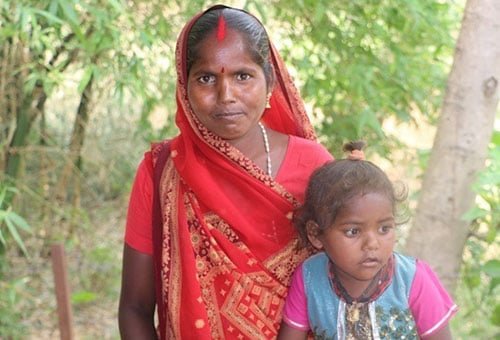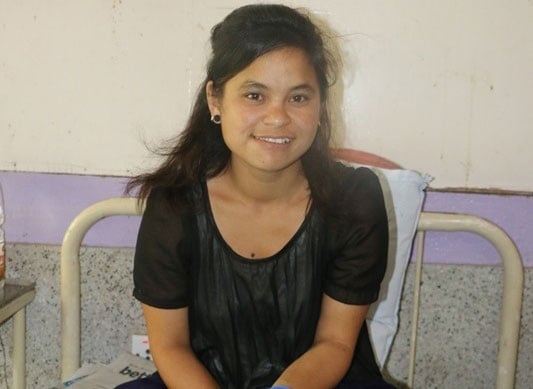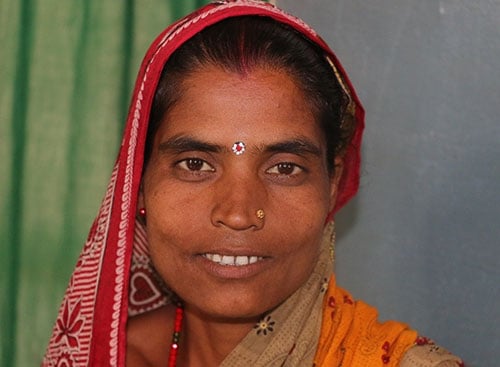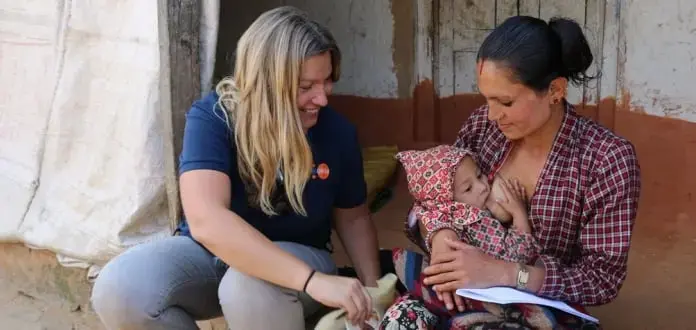DHARAN, Nepal – Dhani Devi Mukhiya remembers the days when her relatives shunned her in public and her husband threatened to bring home another wife. For some of the villagers in her community in Nepal, the obstetric fistula that she lived with for seven years was ‘punishment for a sin’ she had committed in her ‘previous life’.
“I became a soft target for my husband and neighbours at a time when I needed their support the most,” recalls Ms. Dhani Devi, a mother of four children living in eastern Nepal, approximately 660km from the capital city, Kathmandu.

Obstetric fistula is a hole between the vagina and the bladder or rectum. The injury, which leads to incontinence, develops during complications in childbirth, such as prolonged labour without medical intervention. It occurs with higher frequency in adolescent pregnancies. Ms. Dhani Devi, now 29, had her first child when she was 17 years old.
Child marriage is common in the area, and two women in neighbouring villages went through a similar ordeal. All of them are uneducated, belong to poor families, and have limited access to maternal and family planning services.
A new chance
But the women were able to reclaim their lives after undergoing fistula surgeries through a programme supported by UNFPA, in the region’s only public state-of-the-art hospital to treat fistula, B.P. Koirala Institute of Health Sciences (BPKIHS).
Around 125km southeast of Ms. Dhani Devi’s village, Radhika Rai hopes she, too, will have a new chance at life. Now 20, she was married at age 12 and delivered a stillborn baby at 16, developing an obstetric fistula in the process.
She has just received treatment at the hospital’s ward in the picturesque district of Dharan, after attending a fistula-screening camp organized in the hospital.

Ms. Radhika was among 15 other women to receive surgery during a five-day campaign that coincides with this year’s International Day to End Fistula, observed on 23 May.
“I want to give my husband a piece of good news when he returns to Nepal from Malaysia at the end of this year, after five years" spent living with the injury, she says.
Advocates for change
Pramila Chaurisiya waited 20 years before learning that the incontinence she suffered from was caused by an obstetric fistula. She wants to make sure that no woman in her village development committee (VDC), the local administrative unit, has to wait even a month to get treated.
“I tell other married women of my VDC to go to Dharan if they suffer from incontinence from urine or stool,” says the 40 year old, who was married off at 15.
Ranjana Devi Mehata also underwent a successful surgery at BPKIHS and now speaks both for fistula survivors and against child marriage. “Ensuring access to family planning services is not always under our control, but women like me can at least try to convince villagers to delay the marriage of their daughters,” she says.

Hidden cases
A 2011 assessment obstetric fistula in Nepal, conducted by the Government of Nepal, UNFPA and the local NGO WOREC, estimated that there are 200 to 400 new cases of obstetric fistula in Nepal each year, leading to some 4,300 cases.
It is feared, however, that this is only the tip of the iceberg, as most cases are unreported due the stigma associated with the condition and lack of knowledge about treatment. Obstetric fistula was not officially recognized in Nepal until UNFPA’s Campaign to End Fistula was launched in 2010.
As part of the campaign, UNFPA works with the government and other stakeholders to support prevention and treatment by building the capacity of health institutions and service providers. BPKIHS has recently been designated an obstetric fistula training center.
– By Santosh Chhetri




